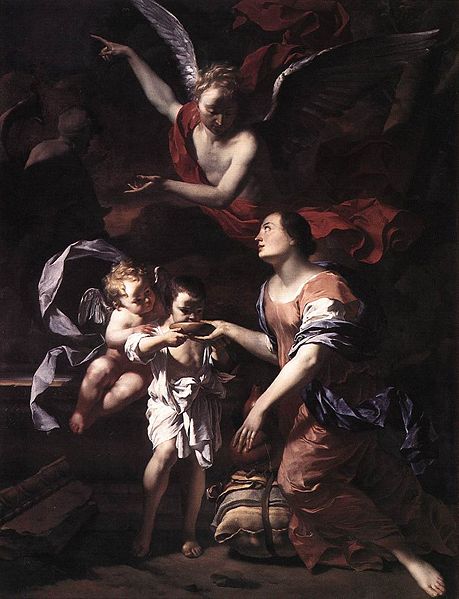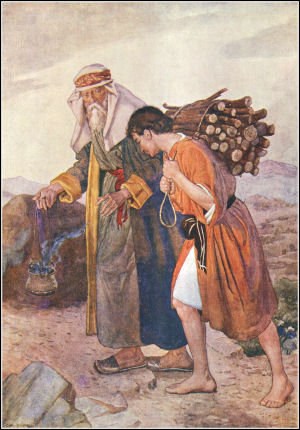On the first day of his long walk to Moriah, Abraham died. He died to his dreams and hopes, particularly relating to his stake in the future of God's kingdom amongst men.
I have no doubt that a deep heartbreak filled his life as realisation washed over his frail, old heart. All he ever held dear was heading for the altar, to be given back to God: rightly so, perhaps, because all he had, came from God in the first place.
As he walked alone along the desert floor, with his son and servants out in the distance, Abraham agonised over his predicament. He had waited so very long for Isaac's birth and then carefully shepherded him through his youth, passing on his own values before time ran out on him.
His carefulness was reflected in the way he later made arrangements for Isaac's future bride. He left nothing to chance, showing the kind of attention to detail that reflected his life journey. He would have applied the same care to Isaac's formative years, thereby forging an intimate bond with his only begotten son: the Greek word for this in the New testament, is monogenes, literally meaning "genetically unique".
Abraham had taken the time and trouble to prepare Isaac for a future role, but now had to live with the notion that he had been preparing a lamb for the slaughter, a firstling of the flock for the altar.
Centuries later, Jesus said "Sacrifice and offering you sought not, but a body you have prepared for me. For in sacrifices and offerings you have no pleasure, but I have come to do your will Oh God (Psalm 40:6 and Hebrews 10)." The parallel between these two lives is clear, for Jesus evidently also spent His own years preparing for a defining moment: a sacrifice on the same hill where Isaac was offered. The vital difference is that Isaac was substituted by a lamb, but Jesus became the substitutionary lamb.
I have no doubt that a deep heartbreak filled his life as realisation washed over his frail, old heart. All he ever held dear was heading for the altar, to be given back to God: rightly so, perhaps, because all he had, came from God in the first place.
As he walked alone along the desert floor, with his son and servants out in the distance, Abraham agonised over his predicament. He had waited so very long for Isaac's birth and then carefully shepherded him through his youth, passing on his own values before time ran out on him.
His carefulness was reflected in the way he later made arrangements for Isaac's future bride. He left nothing to chance, showing the kind of attention to detail that reflected his life journey. He would have applied the same care to Isaac's formative years, thereby forging an intimate bond with his only begotten son: the Greek word for this in the New testament, is monogenes, literally meaning "genetically unique".
Abraham had taken the time and trouble to prepare Isaac for a future role, but now had to live with the notion that he had been preparing a lamb for the slaughter, a firstling of the flock for the altar.
Centuries later, Jesus said "Sacrifice and offering you sought not, but a body you have prepared for me. For in sacrifices and offerings you have no pleasure, but I have come to do your will Oh God (Psalm 40:6 and Hebrews 10)." The parallel between these two lives is clear, for Jesus evidently also spent His own years preparing for a defining moment: a sacrifice on the same hill where Isaac was offered. The vital difference is that Isaac was substituted by a lamb, but Jesus became the substitutionary lamb.
(c) Peter Eleazar at www.bethelstone.com





No comments:
Post a Comment